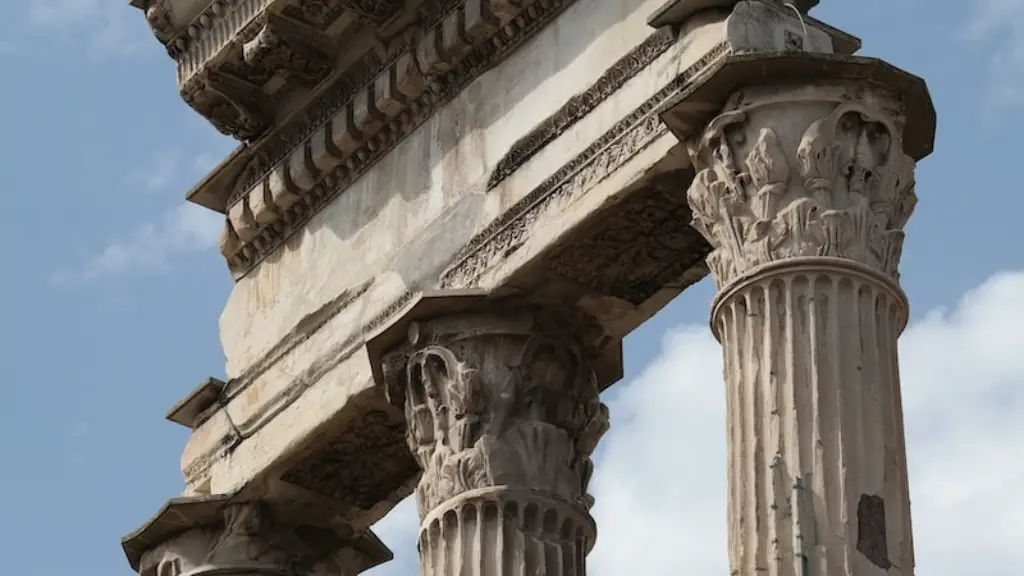Yes, ancient Romans spoke Latin. Latin was the language of the Roman Empire. It was also the language of the Catholic Church. Latin was first used in the Roman Republic.
The ancient Romans did speak Latin, as it was the language of the Roman Empire. However, some Romans also spoke Greek, which was another common language of the time.
When did Romans stop speaking Latin?
It is interesting to note that Latin really became a dead language around 600-750AD. This is in line with the diminishing Roman Empire where few people could actually read, and the Italian, French and Spanish spoken language was rapidly evolving. It is clear that the Latin language was in decline by this time, and it is interesting to see how this impacted the Roman Empire as a whole.
Latin was the original language of the Romans and remained the language of imperial administration, legislation, and the military throughout the classical period. In the West, it became the lingua franca and came to be used for even local administration of the cities including the law courts.
Why did Romans speak Greek instead of Latin
The Romans were greatly impressed by the Greek culture, and many educated Romans and emperors studied Greek themselves. When the Roman Empire spread to western Europe, they found that most of the cultures did not have a written language. Latin was therefore adopted as the written language for bureaucracy.
Vulgar Latin was the spoken language of the Roman people during the time of the Roman Empire. It was not a standard language, and was sometimes known as Common Latin or Colloquial Latin. The Romans would have used Classical Latin for their writing and official events and ceremonies.
Could Jesus speak Latin?
It is interesting to note that even though Jesus was born in a time when Latin was the common language, he probably did not know more than a few words in the language. This is likely because he spoke Greek more often and was not too proficient in Latin.
Latin essentially “died out” with the fall of the Roman Empire, but in reality, it transformed — first into a simplified version of itself called Vulgar Latin, and then gradually into the Romance languages: Spanish, French, Italian, Portuguese and Romanian. Thus, Classical Latin fell out of use.
Who spoke Latin first?
Latin was originally a language spoken by small groups of people living along the lower Tiber River. As the Roman Empire expanded, Latin spread throughout Italy and then to most of western and southern Europe. It also became the predominant language in the central and western Mediterranean coastal regions of Africa. Today, Latin is still used as the official language of the Roman Catholic Church.
It is interesting to note that Italian is seen to be one of the closest Romance Languages to Vulgar Latin and resembles it closely in syntax compared to Classical Latin words. This may be due in part to the fact that Italy was the last Western Roman province to fall to Germanic invasions (in 476 AD), and as a result, the Latin language and culture was able to remain more preserved there. Additionally, the Catholic Church played a major role in keeping the Latin language alive throughout the centuries, as it was the official language of the Church. Thus, we can see that the history of the Italian language is quite unique and has had a significant impact on its development.
Is Latin the oldest language in the world
The Sumerian can be considered the first language in the world, according to Mondly. The oldest proof of written Sumerian was found on the Kish tablet in today’s Iraq, dating back to approximately 3500 BC.
During the 1st century CE, the Roman historian Suetonius claimed that Julius Caesar spoke mostly Greek instead of Latin. This was because most patricians at the time spoke Greek instead of Latin. However, it is important to note that Suetonius’ claim has been contested by other historians.
Did Jesus speak Greek or Aramaic?
Aramaic was the common language of Judea in the first century AD. The villages of Nazareth and Capernaum in Galilee, where Jesus spent most of his time, were Aramaic-speaking communities. There is a consensus among scholars that the language of Jesus and his disciples was Aramaic.
Latin began to die out in the 6th century shortly after the fall of Rome in 476 AD. The fall of Rome precipitated the fragmentation of the empire, which allowed distinct local Latin dialects to develop, dialects which eventually transformed into the modern Romance languages.
What is the closest language to Roman
There are a few reasons for why some dialects of Romanian are closer to Latin than other Romance languages. One reason is that these dialects have a more conservative vocabulary. This means that they have kept more words from Latin than other Romance languages. Another reason is that these dialects are spoken in areas that were more isolated from outside influences. This isolation has allowed these dialects to keep more of their Latin roots.
The Latin Alphabet is the alphabet that was used by the ancient Romans. It is the alphabet that we use today. The Latin alphabet is derived from the Etruscan, Greek, and Phoenician alphabets.
Who still speaks Latin?
It is interesting to note that there are no native speakers of Latin. The language spoken in Ancient Rome developed and changed over time until it turned into different languages, such as French, Italian, and Spanish. This illustrates the power of language to evolve over time.
The Adamic language is a mythical language that is said to have been spoken by Adam and Eve in the Garden of Eden. This language is said to be the original language of humanity, and it is believed by some to be a divine language. There is no evidence that the Adamic language ever existed, but it is a fascinating idea nonetheless.
Warp Up
The Roman period saw the use of Latin as the language of government, literature, and education. It wasn’t until the fall of the empire that Latin began to be replaced by the vernacular languages of the various regions.
There is no one answer to this question as the Roman Empire was so large and had many different cultures within it. However, it is safe to say that Latin was one of the main languages spoken by ancient Romans.





